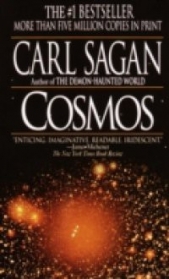The Schopenhauer Cure

The Schopenhauer Cure читать книгу онлайн
Внимание! Книга может содержать контент только для совершеннолетних. Для несовершеннолетних чтение данного контента СТРОГО ЗАПРЕЩЕНО! Если в книге присутствует наличие пропаганды ЛГБТ и другого, запрещенного контента - просьба написать на почту [email protected] для удаления материала
«My father was distant and, I think, chronically
depressed. He took his own life when I was thirteen. My
mother died a few years ago, but I had been estranged from
her for twenty years. I did not attend her funeral.»
«Brothers? Sisters?» asked Tony.
Philip shook his head. «An only child.»
«You know what comes to my mind?» Tony
interjected. «When I was a kid, I wouldn`t eat most things
my mother cooked. I`d always say вЂI don`t like it,` and
she`d always come back with вЂHow do you know you don`t
like it if you`ve never tasted it?` Your take on life reminds
me of that.»
«Many things,” Philip replied, «can be known by
virtue of pure reason. All of geometry, for example. Or one
may have some partial exposure to a painful experience and
extrapolate the whole from that. And one may look about,
read, observe others.»
«But your main dude, Schopenhauer,” said Tony,
«didn`t you say he made a big deal about listening to your
own body, of relying on—what did you say?—your instant
experience?»
«Immediate experience.»
«Right,immediate experience. So wouldn`t you say
you`re making a major decision on second–rate,
secondhand info—I mean info that`s not your own
immediate experience?»
«Your point is well taken, Tony, but I had my fill of
direct experience after that вЂconfession day` session.»
«Again you go back to that session, Philip. It seems
to have been a turning point,” said Julius. «Maybe it`s time
to describe what happened to you that day.»
As before, Philip paused, inhaled deeply, and then
proceeded to relate, in a methodical manner, his experience
after the end of that meeting. As he spoke of his agitation
and his inability to marshal his mind–quieting techniques,
he grew visibly agitated. Then, as he described how his
mental flotsam did not drift away but lodged in his mind,
drops of perspiration glistened on his forehead. And then,
as Philip spoke of the reemergence of his brutish, rapacious
self, a pool of wetness appeared in the armpits of his pale
red shirt and rivulets of sweat dripped from his chin and
nose and down his neck. The room was very still; everyone
was transfixed by Philip`s leakage of words and of water.
He paused, took another deep breath, and continued:
«My thoughts lost their coherence; images flooded pell–mell into my mind: memories I had long forgotten. I
remembered some things about my two sexual encounters
with Pam. And I saw her face, not her face now but her
face of fifteen years ago, with a preternatural vividness. It
was radiant; I wanted to hold it and...” Philip was prepared
to hold nothing back, not his raw jealousy, not the caveman
mentality of possessing Pam, not even the image of Tony
with the Popeye forearms, but he was now overcome by a
massive diaphoresis, which soaked him to the skin. He
stood and strode out of the room saying, «I`m drenched; I
have to leave.»
Tony bolted out after him. Three or four minutes
later the two of them reentered the room, Philip now
wearing Tony`s San Francisco Giants sweater, and Tony
stripped to his tight black T–shirt.
Philip looked at no one but simply collapsed into his
seat, obviously exhausted.
«Bring вЂem back alive,” said Tony.
«If I weren`t married,” said Rebecca, «I could fall in
love with both you guys for what you just did.»
«I`m available,” said Tony.
«No comment,” said Philip. «That`s it for me
today—I`m drained.»
«Drained? Your first joke here, Philip. I love it,” said
Rebecca.
39
Fame, at Last
_________________________
Some cannot
loosen
their own
chains yet
can
nonetheless liberate
their
friends.
—
Nietzsche
_________________________
There are few things that Schopenhauer vilified more than
the craving for fame. And, yet, oh how he craved it!
Fame plays an important role in his last
book,Parerga and Paralipomena, a two–volume
compilation of incidental observations, essays, and
aphorisms, completed in 1851, nine years before his death.
With a profound sense of accomplishment and relief, he
finished the book and said; «I will wipe my pen and say,
вЂthe rest is silence.`”
But finding a publisher was a challenge: none of his
previous publishers would touch it, having lost too much
money on his other unread works. Even his magnum
opus,The World as Will and Representation, had sold only
a few copies and received only a single, lack–luster review.
Finally, one of his loyal «evangelists» persuaded a Berlin
bookseller to publish a printing of 750 copies in 1853.
Schopenhauer was to receive ten free copies but no
royalties.
The first volume ofParerga and Paralipomena
contains a striking triplet of essays on how to gain and
maintain a sense of self–worth. The first essay, «What a
Man Is,” describes how creative thinking results in a sense
of inner wealth. Such a path provides self–esteem and
enables one to overcome the basic vacuity and boredom of
life, which results in a ceaseless pursuit of sexual
conquests, travel, and games of chance.
The second essay, «What a Man Has,” dissects one
of the major techniques used to compensate for inner
poverty: the endless accumulation of possessions, which
ultimately results in one becoming possessed by one`s
possessions.
It is the third essay, «What a Man Represents,” that
most clearly expresses his views on fame. A person`s self–worth or inner merit is the essential commodity, whereas
fame is something secondary, the mere shadow of merit. «It
is not fame but that whereby we merit it that is of true
value.... a man`s greatest happiness is not that posterity
will know something about him but he himself will develop
thoughts that deserve consideration and preservation for
centuries.» Self–esteem that is based on inner merit results
in personal autonomy which cannot be wrested from us—it
is in our power—whereas fame is never in our power.
He knew that ablating the desire for fame was not
easy; he likened it to «extracting an obstinate painful thorn
from our flesh» and agreed with Tacitus, who wrote, «The
thirst for fame is the last thing of all to be laid aside by wise
men.» And he, himself, was never able to lay aside the
thirst for fame. His writings are permeated with bitterness
about his lack of success. He regularly searched
newspapers and journals for some mention, any mention, of
himself or his work. Whenever he was away on a trip, he
assigned this scanning task to Julius Frauenstädt, his most
loyal evangelist. Though he could not stop chaffing at
being ignored, he ultimately resigned himself to never
knowing fame in his lifetime. In later introductions to his
books he explicitly addressed the future generations who
would discover him.
And then the unthinkable came.Parerga and
Paralipomena, the very book in which he described the
folly of pursuing fame, made him famous. In this final
work he softened his pessimism, staunched his flow of
jeremiads, and offered wise instruction on how to live.
Though he never renounced his belief that life is but a
«mouldy film on the surface of the earth,” and «a useless
disturbing episode in the blissful repose of nothingness,” he
took a more pragmatic path in theParerga and























